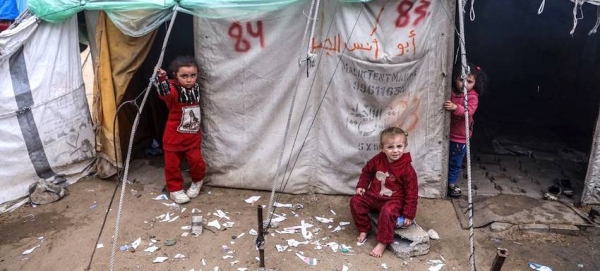The UN aid coordination office, OCHA, has expressed concerns about the potential impact of an Israeli military operation in Rafah on the already dire humanitarian situation in Gaza. OCHA spokesperson Jens Laerke warned that such an operation could lead to a slaughter and further suffering and death for the 1.2 million displaced Palestinians in the area. The UN World Health Organization (WHO) has also made contingency plans in case of a full-scale military incursion, but warns that these plans will not be enough to prevent a humanitarian catastrophe from getting worse.
Dr. Rik Peeperkorn, WHO Representative in the Occupied Palestinian Territory, stated that a military operation in Gaza would result in new waves of displacement, overcrowding, and limited access to essential food, water, and sanitation. The already struggling health system in the region would not be able to withstand the potential devastation caused by such an incursion. Currently, only a fraction of hospitals and health care facilities in Gaza are partially functional, further exacerbating the already dire situation for residents.
Despite slight improvements in the availability and diversity of food in Gaza in recent weeks, Dr. Peeperkorn rejected the notion that the threat of acute malnutrition had receded for the most vulnerable populations in the region. Deaths linked to food insecurity have been reported, with children particularly at risk. The destruction of farming and fishing operations has contributed to the lack of food security in Gaza, causing preventable illnesses and deaths.
In response to the worsening situation, WHO and partners are setting up a new field hospital in Al Mawasi in Rafah and prepositioning supplies in other key locations in Gaza. Efforts are being made to increase services at hospitals and health centers in various areas of Gaza to ensure the detection and treatment of communicable and non-communicable diseases. Emergency medical teams are being deployed to help meet the growing health needs of the population.
The UN and WHO are also working to establish additional primary health centers and medical points in Khan Younis and the Middle Area of Gaza to provide essential health services to residents. Plans are underway to support the restoration of pediatric services in hospitals and expand primary health care centers to address the medical needs of the population. Despite these efforts, the looming threat of a military incursion and its potential impact on the already fragile health system in Gaza remains a grave concern for humanitarian agencies.










